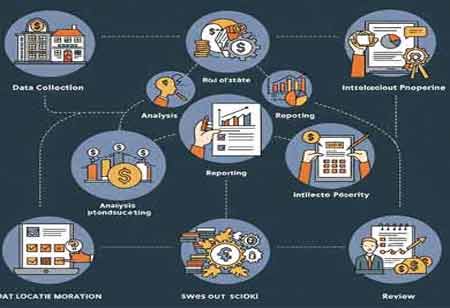CLOSE
Specials
- RegTech Europe
- Financial Risk Management APAC
- Investment Banking APAC
- Corporate Advisory APAC
- Regtech APAC
- Escrow Services
- Digital Banking Latam
- Trading Solutions APAC
- Treasury Management Europe
- CPA Firms Canada
- Financial Risk Management Europe
- Mortgage Broker
- Financial Licensing Europe
- RIA Advisory Europe
- FinTech Canada
- Financial Asset Management APAC
- Investment Banking Canada
- Payment Solution
- Lending Mangment Latam
- Payment Solution Europe
- Broker Dealer Firms Canada
- Alternative Investments Canada
- Financial Fraud
- Investment Management Latam
- Financial Health Europe
- Lending mangment
- Financial Marketing
- Proprietary Trading Europe
- Wealth Management
- FinTech
- Financial Brokerage Firm APAC
- Investment Advisory Europe
- Investment Advisory APAC
- Wealth Management MENA
- Claim Adjusting
- Claim Adjusting APAC
- Mergers and Acquisitions Consulting APAC
- Equipment Financing
- CPA Firms
- Mergers and Acquisitions Consulting Canada
- Investment Services
- Valuation Services Canada
- Wealth Management APAC
- Broker Dealer Firms
- Debt Collection Agencies
- Mergers and Acquisitions Consulting
- FinTech Europe
- Fintech Latam
- Financial Planning / Retirement
- Investment Management
- Financial Compliance
- Digital Banking Europe
- CFO Services
- Debt Collection Agencies Europe
- Wealth Management Europe
- Mergers and Acquisitions Consulting Europe
- Financial Restructuring Europe
- Financial Portfolio Management Canada
- Business Loan
- Payment and Card Latam
- Wealth Management Latam
- Mergers and Acquisitions Consulting Latam
- Tax Advisory Canada
- Trading Solutions Europe
- Alternative Investments
- Digital Insurance Europe
- Investment Services Latam
Weekly Brief
×Be first to read the latest tech news, Industry Leader's Insights, and CIO interviews of medium and large enterprises exclusively from Financial Services Review
Thank you for Subscribing to Financial Services Review Weekly Brief
Innovative Technology Trends Shaping FinTech Software Development
The FinTech industry enhances financial services and creates new operating and customer interaction paradigms.

By
Financial Services Review | Monday, May 27, 2024
Stay ahead of the industry with exclusive feature stories on the top companies, expert insights and the latest news delivered straight to your inbox. Subscribe today.
Emerging technologies like AI, blockchain, cloud, RegTech, and IoT are revolutionizing FinTech, enhancing customer experiences, security, scalability, and compliance, and enabling innovative, personalized financial services.
FREMONT, CA: The FinTech industry enhances financial services and creates new operating and customer interaction paradigms. These emerging technology trends in FinTech software development are reshaping the landscape.
Artificial Intelligence & Machine Learning
Artificial Intelligence (AI) and Machine Learning (ML) have enabled more sophisticated and efficient financial services. AI and ML algorithms are leveraged to improve customer experience, enhance security, and optimize financial operations.
Enhancing Customer Experience: AI-powered chatbots and virtual assistants are transforming customer service in the financial sector. These tools provide 24/7 support, instant responses, and personalized interactions, significantly improving user satisfaction. AI algorithms analyze customer data to predict preferences and behaviors, allowing financial institutions to offer tailored products and services.
Fraud Detection and Prevention: AI and ML are critical in combating financial fraud. Advanced machine learning models detect unusual patterns and anomalies in transaction data, flagging potentially fraudulent activities in real time. These systems learn and evolve, becoming more adept at identifying new types of fraud, thereby providing a robust defense against financial crimes.
Risk Management and Investment Strategies: AI-driven analytics transform risk management and investment strategies. Machine learning models analyze vast amounts of data to predict market trends and assess risk, helping financial institutions make informed decisions. AI-powered robo-advisors provide automated, algorithm-driven financial planning services, making investment management accessible to a broader audience.
Blockchain Technology and Decentralized Finance (DeFi)
With its decentralized, transparent, and secure nature, blockchain technology is at the forefront of FinTech innovation. Decentralized Finance (DeFi) applications built on blockchain networks disrupt traditional financial systems by offering more accessible and inclusive financial services.
Secure and Transparent Transactions: Blockchain ensures secure and transparent transactions, reducing the need for intermediaries and minimizing fraud. Each transaction is recorded on a decentralized ledger, which is immutable and accessible to all participants in the network. This transparency builds trust and reduces the risk of corruption.
Smart Contracts: Smart contracts are self-executing contracts with the terms directly written into code. These contracts automatically enforce and execute agreements when predefined conditions are met, eliminating the need for third-party intermediaries. This technology streamlines loans, insurance claims, and supply chain financing processes, making them more efficient and cost-effective.
Expanding Financial Inclusion: DeFi platforms are democratizing access to financial services. These platforms leverage blockchain to provide banking services to unbanked and underbanked populations. Users access lending, borrowing, and investment services without traditional banking infrastructure, fostering greater financial inclusion and economic growth.
FinTech Cloud Adoption
The adoption of cloud computing in FinTech is accelerating, driven by the need for scalability, flexibility, and cost efficiency. Cloud technology enables financial institutions to innovate faster and deliver better customer services.
Scalability and Flexibility: Cloud infrastructure allows FinTech companies to scale their operations seamlessly. Whether managing increased transaction volumes or expanding service offerings, the cloud provides the flexibility needed to grow without significant upfront investment in hardware. This scalability is crucial for startups and established firms alike.
Enhanced Security and Compliance: Cloud service providers offer advanced security measures and compliance tools essential for the highly regulated financial industry. These include data encryption, identity management, and regular security audits. Cloud platforms assist institutions in complying with regulatory requirements by providing built-in compliance frameworks.
Cost Efficiency and Collaboration: FinTech companies reduce operational costs associated with maintaining physical data centers by adopting cloud solutions. The pay-as-you-go model of cloud services ensures that companies only pay for what they use, making it a cost-effective solution. Additionally, cloud technology facilitates better collaboration and innovation by providing a unified platform for developing, testing, and deploying financial applications.
Regulatory Technology (RegTech)
Regulatory Technology, or RegTech, is transforming how financial institutions manage compliance and regulatory challenges. RegTech solutions leverage advanced technologies to streamline compliance processes, reduce risks, and ensure adherence to regulatory requirements.
Automating Compliance: RegTech tools automate compliance tasks, such as monitoring transactions, reporting, and auditing. These solutions use AI and ML to analyze large datasets, identify compliance issues, and generate real-time reports. Automation reduces the burden on compliance teams and minimizes human error, ensuring more accurate and efficient compliance management.
Enhancing Risk Management: RegTech solutions provide advanced risk management capabilities. By continuously monitoring financial activities and analyzing data, these tools detect potential risks and regulatory breaches before they become significant issues. This proactive approach to risk management helps institutions maintain regulatory standards and avoid costly penalties.
Adapting to Regulatory Changes: The regulatory landscape constantly evolves, and keeping up with changes is a significant challenge for financial institutions. RegTech solutions are designed to be adaptive, enabling organizations to adjust their compliance strategies quickly in response to new regulations. This agility is essential for maintaining compliance and staying ahead in the competitive financial sector.
IoT & FinTech Integration
The Internet of Things (IoT) is making its mark on FinTech by connecting devices and enabling real-time data exchange. Integrating IoT with financial services opens up new possibilities for innovation and improves the customer experience.
Personalized Banking Services: IoT devices, such as wearables and smart home systems, provide valuable data that is used to offer customized banking services. For instance, smartwatches track spending habits and provide insights and recommendations based on real-time data. This level of personalization enhances customer engagement and loyalty.
Enhanced Payment Solutions: IoT transforms payment solutions by enabling seamless, automated transactions. Contactless payments using smartphones, smartwatches, and other IoT devices are becoming increasingly popular. These solutions offer convenience and speed, improving the overall payment experience for consumers.
Improved Asset Management: IoT technology enhances asset management in the financial sector. Connected devices monitor and report on the status and location of physical assets, such as vehicles and machinery. This real-time data helps financial institutions manage asset portfolios more effectively, reducing risks and improving operational efficiency.
The convergence of these emerging technologies is driving unprecedented change in the FinTech industry. AI and ML enhance customer experiences and security, while blockchain and DeFi revolutionize transactions and financial inclusion. Cloud adoption enables scalability and cost efficiency, and RegTech is streamlining compliance. Meanwhile, IoT integration is opening new avenues for personalized services and innovative payment solutions. As these technologies evolve, they undoubtedly lead to further innovations and opportunities in the FinTech landscape.

Copyright © 2025 Financial Services Review. All rights reserved





